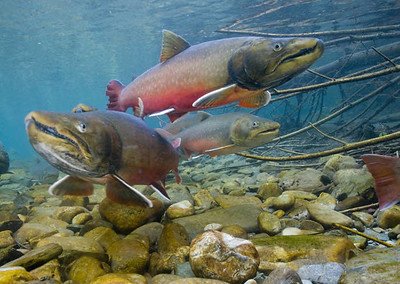Fishing in Canada is regulated by laws designed to protect fish species and natural resources. In British Columbia, people who fish recreationally and commercially are required to hold a valid license for their fishing activities. These licenses are often subject to conditions and restrictions based on species, quantity, times, and designated areas. Violating these conditions by fishing without proper authorization or outside permissible areas or seasons can lead to severe legal consequences.
Common Fishing Offences
Below is a list of the most common types of fishing offences:
1. License Violations
- fishing without a valid license;
- fishing in violation of license conditions;
- failing to carry and produce a valid license;
- operating a vessel without properly painted or affixed registration numbers; and
- fishing under the authority of a communal license without being a designated person.
2. Quota Violations
- exceeding catch limits or quotas;
- possessing fish caught in contravention of regulations; and
- possessing fish whose weight or number cannot be readily determined.
3. Fishing in Prohibited Areas or Times
- fishing in prohibited areas; and
- fishing in closed waters or during closed seasons.
4. Gear Violations
- using prohibited fishing gear; and
- operating improperly marked gear.
5. Illegal sales and purchases
- buying, selling, trading or bartering seafood caught in fishery where sales are not authorized
6. Habitat Damage
- damaging fish habitat through illegal fishing practices
Penalties for Unauthorized Fishing
Penalties for unauthorized fishing vary based on the nature and severity of the offense. Some common penalties include:
1. Monetary Fines. Fines can be substantial, depending on the type of catch and the extent of the violation. Fines for ticketed violations are up to $1,000, while court-imposed fines after conviction can range from $5,000 to $300,000 for a first offence and $10,000 to $600,000 for subsequent offence. Fines for serious offences range from $15,000 to $1,000,000 for a first offence, and $30,000 to $2,000,000 for subsequent offences. Post-conviction fines for serious offences by corporations are even higher, ranging from $500,000 to $6,000,000 for first offences, and $1,000,000 to $12,000,000 for subsequent offences.
2. Suspension or cancellation of licences. Suspensions and cancellations can be temporary, for a period determined by the court, or permanent.
3. Prohibitions. The court can prohibit individuals from engaging in fishing activities or from applying for new licenses for a specified period.
4. Seizure. Courts can order forfeiture of fish, proceeds from the sale of fish, fishing gear and vessels or other equipment used in the commission of an offence.
5. Imprisonment. In serious cases, such as fishing endangered species or repeated violations, offenders can face a term of imprisonment in addition to the above penalties.4
Legal Services for People Accused of Fishing Violations
If you, your company or your organization has been impacted by fisheries charges or the effects of unauthorized fishing, we can help. To assist our clients, we:
- provide detailed and comprehensive legal advice to help you understand your rights, assess the charges, and prepare your defence;
- gather and examine evidence and documentation produced by fisheries offers and prosecutors to identify weaknesses or inaccuracies in the case
- help you pursue compensation for damages if violations of fisheries laws resulted in damage to your property or natural resources
- work to reduce the severity of penalties based on the circumstances and specifics of the offense.
Contact us today to receive expert advice and secure legal representation.
